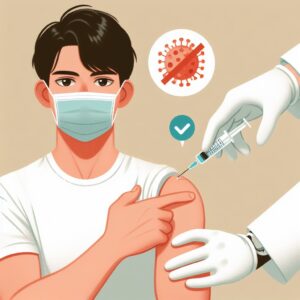what is a vaccine? why should I get one?
If you’ve landed here in going to assume that you’re looking up the phrase what is a vaccine?. Well you’ve come to the right place. Below is a very basic overview and we are happy to provide the answers to several subtopics!
Vaccines – some people love them, others hate them but one thing is for sure – the population we have wouldn’t be here without them.
What does a vaccine do in simple terms?
A vaccine is basically a manmade way to introduce your body to a form of antigen of risk to you, without actually infecting you with the invader. It allows you to build the necessary immunity to recognize and properly protect yourself. Should you ever have to actually fight that real, live antigen off in its full form you body will be prepared.
But aren’t they risky?
While it is true that everything comes at a cost, or in this case with some potential reactions, cost benefit must come into play. It has been proven over time that vaccines are incredibly valuable for keeping people healthy … and alive in general. Where you live and who you interact with will dictate which vaccines make sense for each individual. However, there is almost always a vaccine with benefits that far outweigh the risks for the vast majority of people, and your healthcare provider is the best person to consult. Those interested in learning more, but not sure where to start, should give their general practitioner (family doctor) a call.
People who truly can’t be vaccinated due to their health are relying on herd immunity. Herd immunity is created by the vast majority of the individual’s peers being vaccinated to help keep them safe. The idea is that when the vast majority of the public are vaccinated it is very unlikely the at risk unvaccinated individual will come into contact with the health issue of concern.
Can one vaccine protect against several things?
Each vaccine has a specific use – it may protect against a specific virus, bacteria, venom, or toxin. Some vaccines have even been able to be combined and made into a single shot for several antigens. Combining vaccines allows for protection against more than one health risk in a single shot (or series of shots). Oftentimes, one or multiple booster vaccines are needed to reach sufficient immunity and protection from the risk. The TDAP vaccine would be an example of one that helps build immunity against multiple antigens, versus a straight tetanus vaccine which only provides protection from one specific thing.
How are they administered?
The majority of vaccines are injected intramuscularly by a healthcare professional, but some can be given other ways as well. Vaccines often require an initial series of one or more boosters. Most even need follow up boosters at much longer intervals later (for example tetanus). Depending on the type of vaccine, the mechanism of action may vary.
They all aim to help the body more quickly recognize and more quickly/effectively fight off that specific invader should you ever become infected. Vaccines generally do not pose any risk of disease as the invader is either only partially present, weakened, unable to reproduce within the body, modified, or completely inactivated. This allows the body just enough information to create a response without actually risking infection.
Vaccine efficacy can vary greatly depending on the type. Some vaccines, such as the flu shot just minimize how sick you get, or only be effective against certain strains. Others, such as rabies, entirely avoid the negative consequences of infection as long as your titre is high enough for sufficient protection.
Which vaccines do I need?
The vaccines most relevant to, and safest for you will depend on several factors including your geographical location, lifestyle, and medical history. It is always best to discuss any vaccine questions and thoughts with your healthcare professional. What is right for one person doesn’t always carry over to the next. A medical professional familiar with your history and lifestyle is the most qualified to recommend the vaccines relevant to you, and go over any potential concerns or side effects that you may need to be aware of.
Don’t forget, “An ounce of prevention is worth a pound of cure” – Benjamin Franklin
For more information feel free to check out the links below:
https://www.britannica.com/science/vaccine
https://www.chop.edu/centers-programs/vaccine-education-center/making-vaccines/how-are-vaccines-made
https://www.livescience.com/32617-how-do-vaccines-work.htmlhttps://immunize.ca/what-immunization
https://immunize.ca/what-immunization
https://www.medicinenet.com/script/main/art.asp?articlekey=5925
https://www.cdc.gov/vaccines/vpd/vpd-vac-basics.html
https://www.vaccines.gov/basics
https://www.who.int/topics/vaccines/en/
https://www.publichealth.org/public-awareness/understanding-vaccines/vaccines-work/
Check out some of our other great articles!





